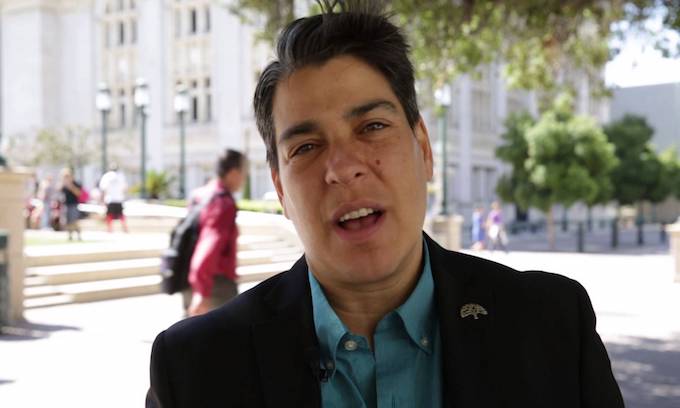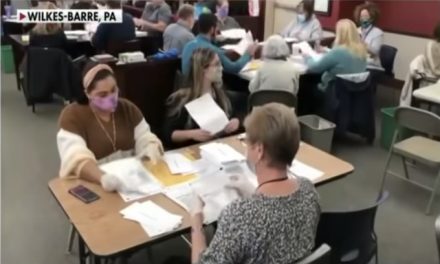OAKLAND — The city is withdrawing its participation in a controversial FBI counter terrorism task force at the urging of privacy and civil liberties advocates who say federal surveillance of citizens is overly broad and discriminatory and worry that the city’s participation in the task force would interfere with its own civil rights laws.
“We’re not terminating all interactions (with the FBi); this is specific to the joint terrorism task force,” said City Council President Rebecca Kaplan during Tuesday’s council meeting, noting that the FBI “has a troubling history of profiling” and that the task force “undermines community safety and does not strengthen community’s ability to solve crimes.”
A letter sent earlier this month to the City Council from the FBI’s Special Agent in Charge of the San Francisco division, John Bennett, pushed back on that idea, noting that it is the “expectation” that Oakland police command staff typically provide oversight to ensure their officers who participate in the task force comply with state and city laws.
While Bennett, in his letter, acknowledges that the FBI will still have an “obligation” to investigate in Oakland, the city would lose “visibility” into federal investigations in Oakland.
But a lack of transparency and accountability is part of what troubled the Privacy Advisory Commission and others in the first place, according to city documents.
Under city law, the task force was required to disclose its actions to the commission and the City Council annually, but a memo from Kaplan included in the council’s agenda documents states that the reporting was insufficient, and the privacy commission started raising questions about that in April 2019.
“The inadequate report left little room for oversight and protection of the civil liberties of the Oakland community,” the memo says.
A police department memo, meanwhile, says it brought its 2018 task force report to the privacy commission but had to revise it to include more information requested by the commission and held off on bringing it to the city council while the commission reviewed other documents, including a memorandum of understanding with the FBI.
In the 2018 and 2019 reports from the police department about the task force’s activity those years, the department recorded no instances of violation of city or state law.
Still, advocates say, the history of the FBI’s activity and surveillance is worrisome. They point to recent promises by U.S. Attorney General Bill Barr to investigate “criminal organizers and instigators” of violence during protests against police brutality as domestic terrorists. A letter sent to the Oakland City Council by a coalition of civil rights groups also address the subjection of Middle Eastern, Muslim and South Asian communities to “pervasive discrimination and surveillance by the federal government based on nothing more than their religion or national origin” since Sept. 11, 2001 and cite the task force’s partnership with Immigration and Customs Enforcement as other reasons to withdraw from the partnership.
Brian Hofer, chair of the city’s privacy commission, said that withdrawing from the task force would not preclude Oakland from being warned about threats to the city, nor would it impact other partnerships the city has with the FBI. He pointed to other cities, including San Francisco and Portland, that have withdrawn from the task force.
San Francisco leaders cited similar concerns to Oakland when it opted out of the partnership in 2017.
“JTTFs have terrorised our communities for far too long, targeting peaceful protesters and profiling entire communities based on nothing more than race, religion, and ethnicity,” said Javeria Jamil, a staff attorney with the Asian Law Caucus, in a written statement. “Oakland’s communities are safer with this partnership coming to an end.”
It’s not the only law enforcment-related change the Oakland City Council took this week.
Months after starting a process to revise the Police Department’s policy about use of force, the Oakland Police Commission approved a version that its members call a needed progressive change, and the City Council gave its blessing on Tuesday.
Included in the new policy are provisions requiring officers to use de-escalation tactics and direction to consider disengagement instead of immediately providing force. It requires officers to intervene if they see their colleagues using inappropriate levels of force, and puts strict parameters on how much force officers can use when they deem it necessary.
The police department had over the summer already instructed officers to not use carotid restraint holds — intended to slow or stop blood flow to the brain — in training or on the streets, according to police spokeswoman Officer Johnna Watson.
But the commission and police department had struggled to reach an agreement about the specifics of the policy when commissioners wanted language in the policy to address how to hold down a person who is being arrested or restrained by police. Ultimately, the two sides worked out the policy to state that while “transitory” body contact between an officer and person is allowed, officers cannot kneel, sit or stand on a person’s chest, back, stomach or shoulders, limiting their ability to breath.
“The Black community has suffered enough. We needed a new use of force policy that clearly guides officers to protect us, not harm us,” said Ginale Harris, a member of the police commission, in a written statement. “I don’t believe that policy changes behavior, and I believe it’s going to take more than just this policy to have accountability. However, I do believe this new policy is a start.”
___
(c)2020 the San Jose Mercury News (San Jose, Calif.)
Visit the San Jose Mercury News (San Jose, Calif.) at www.mercurynews.com
Distributed by Tribune Content Agency, LLC.
—-
This content is published through a licensing agreement with Acquire Media using its NewsEdge technology.



















Recent Comments